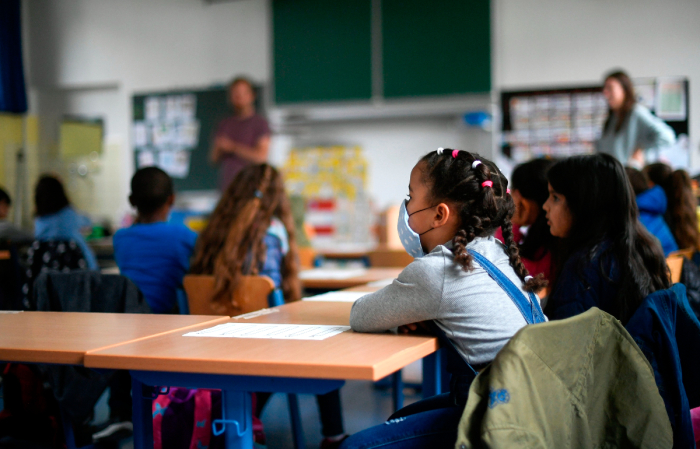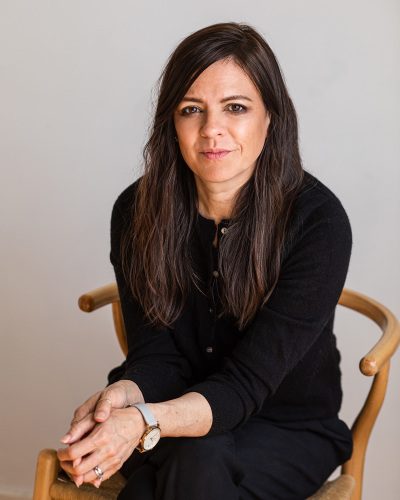Parents raise concerns over 'woke' ideology infiltrating Catholic schools despite 'conflict' with Church teachings
Parents raise concerns over 'woke' ideology infiltrating Catholic schools

Parents of students at a private Catholic school in Chicago are raising concerns that “woke” ideology that has infiltrated secular schools has also extended into Catholic schools despite its apparent contradictions with the Catholic Church's teachings, according to Noelle Mering, a scholar with the Ethics & Public Policy Center.
Mering wrote an op-ed for The National Catholic Register last week, outlining how the “woke toxicity” of critical race theory assaults the Catholic Church’s teachings by promoting a “rejection of the person,” a “rejection of reason” and a “rejection of reverence.”
She elaborated on the incompatibility between woke ideology and the Catholic Church's teachings in an interview with The Christian Post.
“The Christian message is that people are defined by the love of God, and the woke message is that people are defined by the hatred of society,” she said. “From that implies two very different courses of action.”

Mering asserted, “The message of the Gospel is to spread the good news that we are loved. The message of the woke is to spread the bad news that we are either hated or haters.”
She characterized the latter message as “a fundamentally divisive and rather despairing ideology,” acknowledging that while it “appeals to people’s instincts to be compassionate and to fight real evils and injustices that do exist and ought to be fought by Christians,” the result of its implementation will have long-lasting negative consequences for American society, she added.
“It’s a bit of a Trojan horse in that it takes ... good instincts and inserts all of these ideological poisonous bombs that are going to end up really erasing the possibility of a relationship with Christ in the hearts of men and women. So I do think the stakes are high and the more aware we can be, the better,” she continued.
Mering warned that although critical race theory and woke ideology promises “friendship and reconciliation … it actually leads to greater division and … an … inability to live a flourishing human life.”
In her op-ed for The National Catholic Register, Mering wrote that the “woke toxicity” consisting of a “top-down implementation of extreme ‘antiracism’ and gender ideology in the curriculum” is “not just happening at secular schools.” She detailed recent events at the Chicago-area Loyola Academy, a Catholic high school with an annual tuition of $17,750, as an example of the broader national trend.
Mering spoke of “high-paid diversity consultants brought in for the sake of training faculty students” as well as “teachers including their gender pronouns in Zoom meetings.”
She added: “Students were racially segregated for school assignments on privilege. A working-class student was bewildered to learn that because of his skin color, he is an oppressor to his peers, some of whom live in multi-million-dollar homes.”
Speaking to CP, Mering recalled how “a mutual friend put me in touch with some of the parents at the school, and they were very distraught over what was happening at the school.”
“The thing I’ve learned in the interim is how deeply loyal they are,” she said.
Mering described the parents she spoke with as “multi-generational families” that are “really invested in seeing the school continue its legacy of just being a well-regarded and strong institution.” They are concerned, she said, about the “escalation of woke ideology coming from the top down injected into the community into the student body” that they believe has “caused a lot of strife, [and] a lot of division.”
“They’re really concerned and they don’t want to abandon the school. They really want to reform it and get it back to a place where they feel like they’re a unified community again,” she added.
Mering told CP that a group of parents with children at Loyola Academy have “started a website called kidswinloyola.com where they are trying to bring more attention to what’s happening.”
The group of concerned parents who started the website maintain that “Loyola Academy’s recent aggressive adoption of an intolerant Identity Curriculum has created a growing crisis in the school” that “conflicts with the Jesuit tradition of rigorous open inquiry and discernment” by excluding “any other alternative approaches.”
The parents cited the “lack of intellectual diversity and development of critical thinking skills” and “intolerance of alternative views and stifling of student discussion” as two examples of the negative impact the curriculum has had on the Loyola community.
Other negative effects of the curriculum listed by the parents included “indoctrination of students and faculty, verbal and cyberbullying of students, deterioration of school spirit and division among student groups, [and] increasing levels of anxiety, depression and isolation in students.”
Prior to creating the website, kidswinloyola.com, the parents shared their concerns about the new curriculum with the school. As Mering explained, the leaders of Loyola Academy “wrote a letter ... initially after the initial pushback, but it was rather vague.”
In the letter, obtained by CP, the school’s leadership acknowledged that they had received “inquires and comments about the school’s efforts in the area of diversity, equity, and inclusion.”
“Everything we do at Loyola must be grounded in our Catholic, Jesuit mission,” Loyola Academy President the Rev. Patrick McGrath and Chair of the Board Nancy Paridy wrote in the April 9 letter. “We don’t always do this work perfectly, and we will stumble in our human efforts to put into action the call of Christ, but our goal and teachings are always rooted in our Catholic faith.”
The school’s leaders vowed to work with an outside, independent consulting firm to “gather information via surveys and focus groups” in an effort to “evaluate the parent perspective and create additional venues for feedback.”
They implied that the implementation of the new curriculum, never explicitly mentioned in the letter, was the result of a recommendation from the most recent review of the school’s Catholic and Jesuit identity, which includes annual visits from a representative of the Midwest Jesuit Province and a visitation by a team of Jesuit educators occurring every six years.
“Among the recommendations in the most recent review was for Loyola to dedicate itself to important questions about diversity. More specifically, we were encouraged to promote a greater sense of belonging and connection among students and to engage students in challenging conversations regarding race, gender, and politics from the onset of the high school experience.”
In a statement to CP, Loyola Academy denied segregating students by race during a discussion on privilege and said the staff never suggested that white students from lower-income households were oppressors over minority students from wealthier households because of their race.
When asked to respond to Mering’s assertion that critical race theory is incompatible with Catholic Church teaching, Robin Hunt, Loyola Academy’s director of Public Relations, maintained that “Loyola Academy’s commitment to creating a more inclusive community flows from our Catholic faith and Jesuit school mission.”
Hunt pointed to a 20-year-old pastoral letter from then-Archbishop of Chicago Francis Cardinal George and a 2018 pastoral letter from the United States Conference of Catholic Bishops as evidence that discussions on race are not incompatible with Catholic Church teaching. The 2001 pastoral letter asserted that the U.S. still suffers from “spatial,” “institutional,” “internalized” and “individual” racism despite the fact that “overt racism” had declined sharply.
George urged the Archdiocese of Chicago as a whole, individual parishes, as well as Catholic educational institutions to “address racial and systemic injustice,” including by holding “Anti-Racism workshops.” The 2018 letter also contended that “the roots of racism have extended deeply into the soil of our society,” suggesting that racism was an issue the Church needed to address directly.
Mering called on parents to continue “giving pushback to the schools” and organizing other parents “to resist this and to push back on it.” She stressed that if the school refuses to change course, parents have an obligation to “pull the kids out” and send them to another school or homeschool them.
Mering’s op-ed came less than one week after the publication of her latest book,Awake, Not Woke: A Christian Response to the Cult of Progressive Ideology. Mering began writing the book before the novel coronavirus pandemic caused much of the nation to shut down and continued to write it throughout the summer. She alleged that the infiltration of critical race theory and woke ideology into American schools has accelerated dramatically in the past year, as exemplified by the situation at Loyola Academy.
“At that particular school, it’s escalated over the past year. It’s escalated, I think, at a lot of schools … throughout the country,” she asserted. “I think this has been coming on for quite a while, actually. I think we’re just now becoming more awakened to it because of the escalation.”
While the ideology behind critical race theory dates back more than 100 years, Mering contends that it has become commonplace in schools over the past 30 years: “It seemed like it started on college campuses … in the high schools and elite prep schools, but it’s also now extending all the way into … grammar school, so it’s something we need to be … aware of.”
“I don’t think anyone can be complacent. If you’re a parent … to assume that your school is not being affected by this … is no longer an option.”
As concern about critical race theory continues to grow, states have considered bills to ban public schools from teaching the controversial curriculum. A ban on critical race theory has already become law in Idaho, while the Tennessee House of Representatives passed a similar ban earlier this month.
Ryan Foley is a reporter for The Christian Post. He can be reached at: [email protected]




























